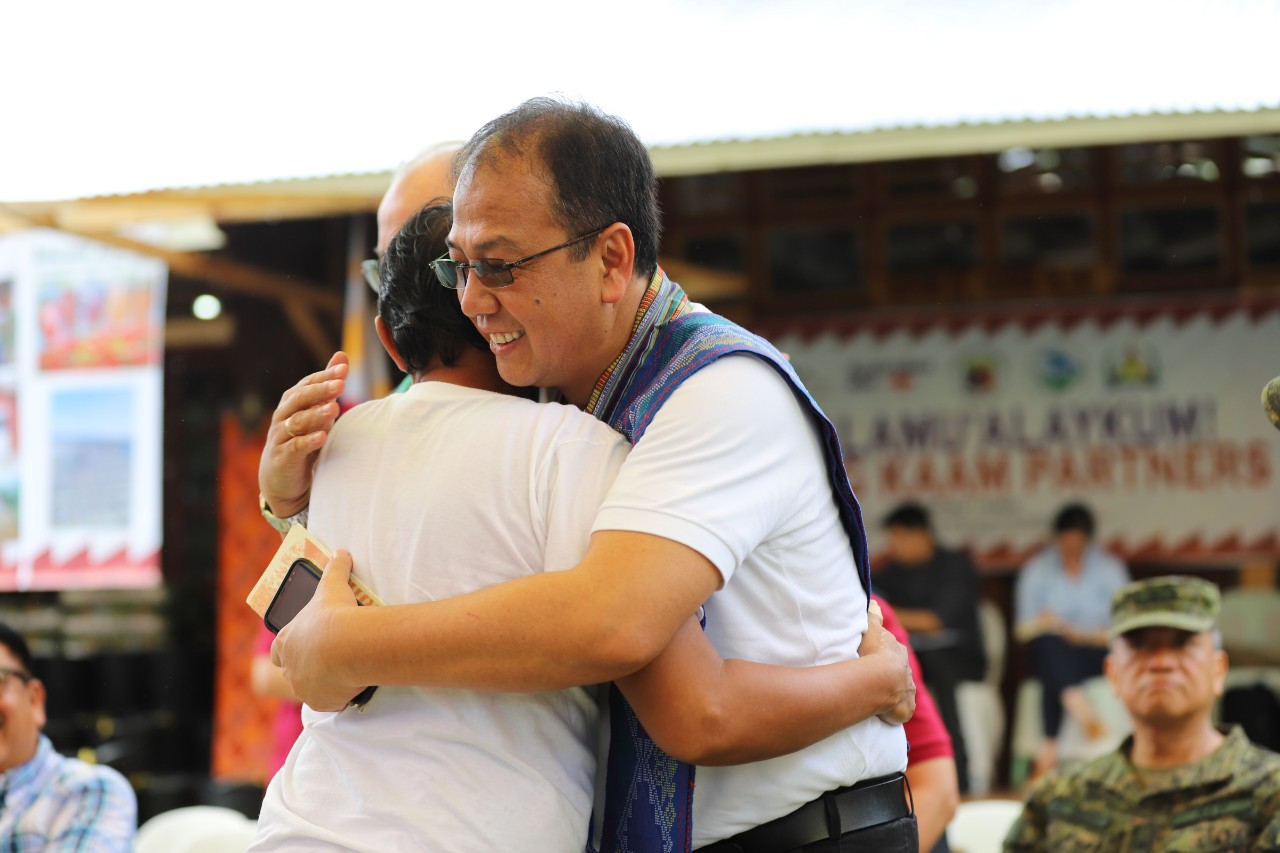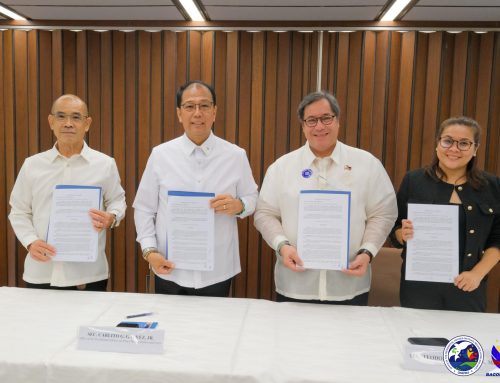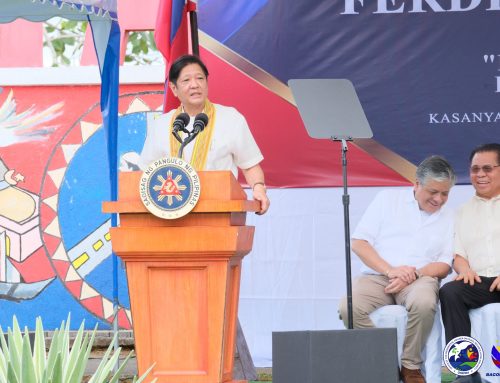ISABELA CITY, Basilan, June 25, 2019 — A holistic program to help transform the lives of 214 former members of the Abu Sayyaf Group (ASG) was launched here Monday in an effort to prevent and decisively address violent extremism in this island province and encourage active members of the group to return to the folds of the law.
Basilan Governor Hajiman Hataman Saliman said it is the mission of the local government to deny the ASG the chance to make the province as their stronghold again.
“I thank you for coming back and (joining) the mainstream society,” he told the former members of the ASG at the launching of the program inside the camp of the 4th Special Battalion in Kabunbata, Isabela City, Basilan.
“Let’s work together. Our experiences should lead us to not use and take up arms anymore,” he said in the vernacular.
“Let’s use our time now for peace building. The government is here to help,” he added.
Preventing and Transforming Violent Extremists Program
The program was conceptualized as members of the terror group have begun to turn themselves in following continuing pressure from the military operations, and strong intervention coming from the local government and religious groups as the threat of violent extremism has taken root in some parts of Mindanao.
The Prevention and Transformation of Violent Extremist program was crafted when Mujiv Hataman, the former regional governor of the now defunct Autonomous Region in Muslim Mindanao (ARMM), invited the non-government organization Balay Mindanaw to come up with a holistic program to help the returnees integrate into mainstream society.
The reintegration planning was then extended to other sectors such as the military and non-government organizations in the island province
From 2017 to January 2018, a series of interventions were initially given to 86 former members of ASG. The group underwent an exposure tour program in Cagayan de Oro City.
From its success, the regional government of the former ARMM, the Armed Forces of the Philippines, and Balay Mindanaw felt the need to improve and expand the initiative, leading to the creation of a Disengagement Program for Former Local Terrorists.
The program aims to provide a platform for a comprehensive reformation for former extremists who decided to return to the folds of the law. It will also develop a template that will guide the crafting of regional and national policies for reformation which will benefit provinces which are confronting the problems of violent extremism.
The components of the program include psychosocial debriefing, religious re-education, exposure tour (changing the mindset and offering possibilities), research and family profiling, coordination work, and regional learning and sharing. This program will also include assistance to former victims and affected communities.
Charlito Manlupig, the chief executive officer of Balay Mindanaw, admitted that the task in helping former ASG members is very “delicate but rewarding.”
Regaining normal life
Hussin Jamiri, one of the former members of the ASG, said giving them a second chance to live a new life is something they will forever be grateful for.
Jamiri, who admitted to have been hiding for 13 years, decided to return to the folds of law because of the constant pressure coming from the military.
He said he was tired of running, and wanted to reclaim his old life
He is now convincing other ASG members to leave behind the “life of a thug.”
“For those who are still with the Abu Sayyaf, I hope you will be enlightened. There is so much to life than hiding in the mountains,” he said in his native Yakan dialect.
Australian support
The success of the program eventually led the Australian government to support the initiative through its embassy in Manila.
The program, according to Australian Ambassador Steven Robinson, is “fundamental to the future of peace in the Bangsamoro.”
Robinson flew here, defying the advisory of western countries against traveling to Basilan, to witness the remarkable progress in the national government’s deradicalization efforts.
“The turning away from the Abu Sayyaf is an outstanding accomplishment, and we should think now on how to sustain the success,” he said.
Robinson then talked to the former members of the Abu Sayyaf, and encouraged them by saying, “You are essential to the future of peace in this region and your participation in this program shows that there is great hope for the future of the Bangsamoro and Basilan.”
“Turning away from such a powerful force, such as violent extremism, takes a great deal of courage. And I applaud you for what you have done,” he said.
He said the Australian government is committed to address the global threat of terror groups.
“The program that you are all part of today, aligns heavily with Australia’s own priorities in preventing violent extremism not only in southern Philippines but across southeast Asia,” he noted.
To ensure sustainability of the program, Robinson said he “believes fervently that it is important to work with our partners to continue addressing the drivers of violent extremism, engaging early with conflict-affected communities, and challenging terrorist propaganda and recruitment.”
He then called all sectors to remain committed for the sustainability of the program.
“Radicalization, violent extremism, and the recruitment of the vulnerable, cut across boundaries and jurisdictions, so collaboration, working together, is such a critical part of our strategy,” he pointed out.
Addressing the primary causes of conflict is crucial in weeding out the influence of the terror groups, according to Major General Andres Centino, the AFP’s Deputy Chief of Staff for operations, said.
“It is imperative to uphold substantial solutions to address the root causes of the conflict,” he said.
The ambassador went on to shake the hands of all former ASG members in an act of peace amidst the heavy downpour.
As a gesture of gratitude, the government of Basilan presented to Ambassador Robinson a framed hand-woven Yakan cloth and “pis” – a Yakan headdress, which connotes the wearer as an “Ambassador of Peace of Basilan.”
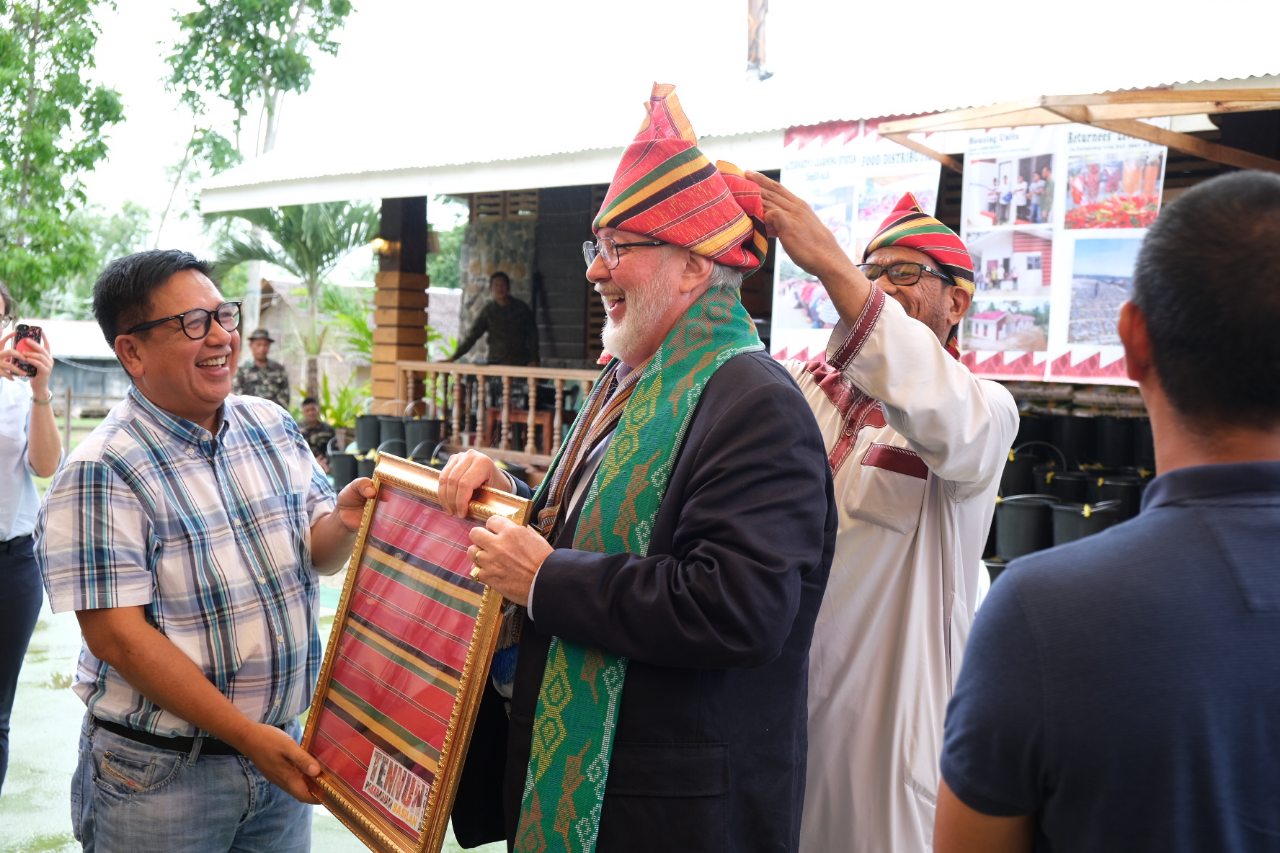
Governor Hataman emphasized that the visit of “the good Ambassador Robinson will help change the image of Basilan.”
While wearing his “pis” at the launching, Hataman in jest named Ambassador Robinson as “Datu Kasangyangan (Peace Ruler),”
Investing in Peace
Presidential Peace Adviser Carlito G. Galvez Jr, who was once the Brigade Commander here in 2012, said “it is the investment in peace that made Basilan successful in addressing the trend of violent extremism.”
He encouraged the private sectors, particular those in the corporate businesses, to also invest in this kind of peace initiative.
“We see the active involvement of foreign countries in helping address the fundamentals of the conflict here in Mindanao. I am inviting our private sector to do the same in the spirit of compassion and malasakit (care),” he urged.
Galvez who is known to have pioneered the usage of “peace lens” in the security operations during his stint as commander of the 104th Brigade in Basilan in 2012, 6th Infantry Division in Central Mindanao, and Western Mindanao Command has helped members of Abu Sayyaf, Bangsamoro Islamic Freedom Fighters and the Maute Group to turn themselves in to the authorities.
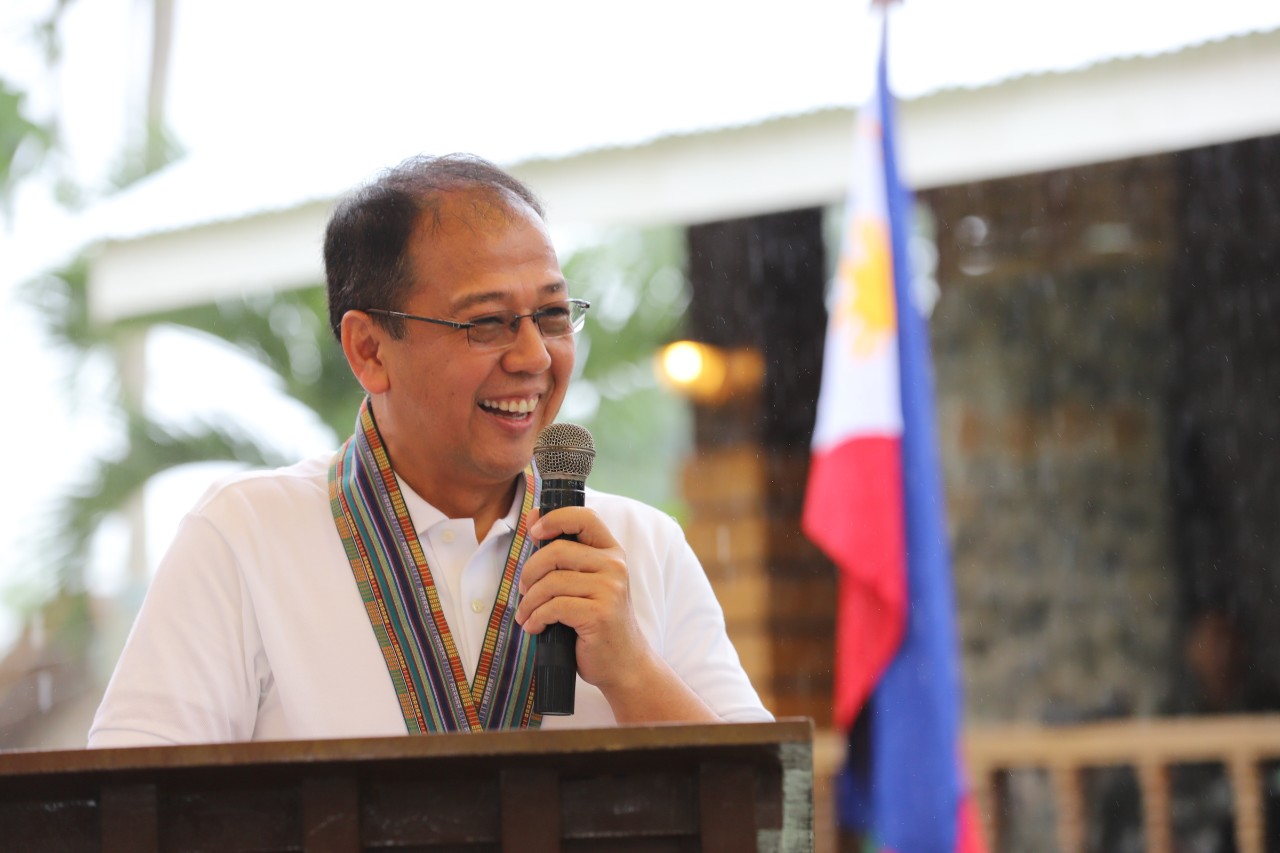
A total of more than 500 Abu Sayyaf, Bangsamoro Islamic Freedom Figthers and Maute members already surrendered to the government and we are expecting that there will be more.
“Basilan today can be viewed as a model for other areas to emulate in developing programs for the prevention of this misguided ideology to thrive on,” he said.
Marawi City and areas in Lanao del Sur and Lanao del Norte, which have experienced the impact of violent extremism, are now following the footsteps of the people in Basilan, Galvez said referring to the deradicalization of former Maute Group members which is being conducted by the 103rd Brigrade in Marawi City.
“Today, we are gathered here with a common objective, which is to help the members of the Abu Sayyaf to return to the path of peace,” he said.
Guiding the youth
He said the terror group is taking advantage of the vulnerabilities of the youth. They are usually being targeted for recruitment
Galvez noted that a number of those who turned their back on the Abu Sayyaf are as young as 12 years old, including women. Most of them are between 20 to 30 years old.
To help guide the youth, the Office of the Presidential Adviser on the Peace Process (OPAPP) together with the AFP and other agencies have been engaging the Bangsamoro and Indigenous Peoples youth in Mindanao with the aim to empower them through active participation in governance.
During the project launch, OPAPP also distributed sacks of rice, food and personal health care packs to the 214 returnees. ###


